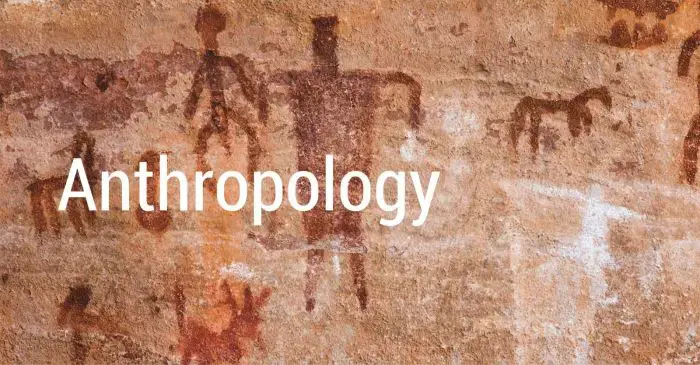Anthropology is a fascinating field that delves into the diverse aspects of humanity—from ancient civilizations and biological origins to languages, social structures, and cultural practices across the world. For those passionate about understanding what makes us human, studying anthropology at a leading university can be a transformative experience. This article explores some of the best universities globally for studying anthropology, highlighting the unique aspects of each program.

Why Attend a Top University for Anthropology?
A top-ranked anthropology program offers more than just academic rigor; it provides access to respected faculty, extensive research resources, and opportunities for hands-on fieldwork. Leading universities often boast interdisciplinary programs and partnerships that can broaden your knowledge and connect you to field experts worldwide. Studying at one of these institutions can enhance your analytical skills, cultural understanding, and open doors to careers in both the academic and professional spheres.
Best Universities for Anthropology
1. Harvard University (USA)
- Program Strengths: Harvard’s anthropology program is one of the most established, covering biological, social, and cultural anthropology with an emphasis on both traditional and contemporary studies.
- Special Resources: Students have access to Harvard’s extensive museum collections, global field sites, and high-impact research projects, allowing for an enriched learning experience.
- Career Prospects: Graduates have gone on to pursue influential roles in academia, policy, and public health.
2. University of Cambridge (UK)
- Program Strengths: Known for its interdisciplinary approach, Cambridge combines archaeology, biological anthropology, and social anthropology, emphasizing empirical research.
- Unique Opportunities: Cambridge offers numerous fieldwork projects and a wide range of cultural resources, making it a prime location for studying global anthropology.
- Alumni Network: Cambridge’s strong alumni network includes experts in both anthropology and archaeology, providing invaluable networking opportunities.
3. Stanford University (USA)
- Program Strengths: Stanford’s anthropology department is renowned for its focus on global social issues, providing a platform to study topics like migration, health, and environmental anthropology.
- Research and Collaboration: The program encourages cross-disciplinary collaboration, with students often engaging in joint research with departments like environmental science and sociology.
- Student Opportunities: Stanford provides substantial fieldwork opportunities, supporting student research through its global network.
4. University of Oxford (UK)
- Program Strengths: Oxford’s anthropology program is comprehensive, offering cultural and biological anthropology as well as archaeological studies.
- Resources and Connections: Students benefit from Oxford’s rich collections and museum resources, as well as connections to prominent field sites across the world.
- Distinguished Faculty: Oxford’s faculty are leaders in their fields, providing students with expert mentorship and global research insights.
5. Australian National University (ANU) (Australia)
- Program Strengths: Known for its focus on the Asia-Pacific region, ANU’s anthropology program offers unique insights into Pacific and Asian cultures, indigenous studies, and regional anthropology.
- Global Influence: ANU’s program has an extensive reach, with partnerships across Asia-Pacific, facilitating fieldwork in culturally rich and diverse regions.
- Career Pathways: ANU graduates are highly regarded in cultural, academic, and governmental roles, often working in indigenous rights, environmental advocacy, and social policy.
Choosing the Right Program for You
When selecting an anthropology program, consider:
- Specialization: Identify universities with strengths in areas that align with your interests, such as cultural anthropology, archaeology, or human biology.
- Fieldwork: Schools with robust fieldwork opportunities enable hands-on learning, an invaluable aspect of anthropology.
- Faculty Expertise: Universities with distinguished faculty can provide mentorship and insights that deepen your understanding and prepare you for advanced study or career opportunities.
- Research Facilities: Museums, archives, and access to primary resources can significantly enrich the anthropology learning experience.
Career Opportunities for Anthropology Graduates
A degree in anthropology opens pathways in various fields:
- Academia and Research: Many graduates pursue roles in teaching and research at universities or work with museums and historical societies.
- Public Sector: Anthropologists contribute to public health, cultural preservation, and community development projects, helping to inform policy and address social issues.
- Private Sector: Companies hire anthropologists for roles in market research, human resources, and corporate social responsibility, where cultural insight is invaluable.
Conclusion
Whether you’re passionate about exploring ancient civilizations, studying cultural practices, or contributing to modern social science research, choosing a top university can elevate your educational journey and career in anthropology. Each university listed offers a unique blend of resources, fieldwork opportunities, and specialized expertise, equipping you with the skills to make a meaningful impact. Pursuing an anthropology degree from these prestigious institutions sets the stage for a fulfilling career in understanding and advancing the study of human societies.